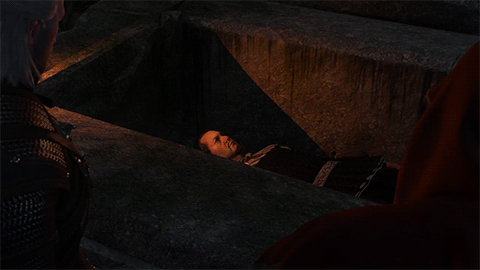Xenich
Cipher
- Joined
- Mar 21, 2013
- Messages
- 2,104
Yes. Yes, you're absolutely right.
The save system is the most dangerous element when comes to C&C system. It can entirely break the system of Choice & Consequences.
I think the way to avoid the "load game" is to set the consequences far away from the choices.
I mean, you make a choice, and later you get the consequence.
To apply this method, you have to make sure the choice properly establishes the nature of the consequence. If you provide a choice and there is no real determination to be made with the consequence being unforeseen. All you have done is created a random penalty system for a random choice. Long term consequences should be reasonably deduced. You can make the determination of such very difficult, complex in the evaluation, but the element of being able to properly consider the possible ramifications of a decision should always be in the players hands.
Problem with your statement is that you want everything to know beforehand.
TW1 showed that above is bullshit and you don't need to know it.
In TW1 case and in TW2 case (just worse than in TW1) C&C is handled this way:
Problem ---> Choice ---> instant resolve of problem ---> late consequences.
There is nothing here about establishing consequence part. Sure you can try to reach some long term goal like siding with order but consequences of your decisions are working either way and usually they have 0 to do with your planning.
That is superior to any other system.
In most of RPGs C&C is completely resolved in close to max 20 minutes aside from few choices in whole game which can last hour or more but their consequence is never negative.
You don't have to know that the town will be lost to fire, this can be deduced as a possibility by the fact that a town made of straw buildings combined with archers being trained to use flaming arrows. That is the sort of deduction I am talking about. The player doesn't have to know the late consequence exactly, but if they are completely surpised by it, then the story development and player interaction was poorly done. Like I said, the player should always have control over the general likelihood of an outcome. Now you can hide it cleverly and you can use unexpected plot twists and events to mix things up (ie a random natural event that due to the players choice produced an unlikely or unforeseen consequence such as simple bad luck. Don't want too many of those or it defeats the point of C&C) , but you have to allow the player control or there is no point in game play, it becomes a movie with random button clicking.











![Glory to Codexia! [2012] Codex 2012](/forums/smiles/campaign_tags/campaign_slushfund2012.png)
![Have Many Potato [2013] Codex 2013](/forums/smiles/campaign_tags/campaign_potato2013.png)
![The Year of Incline [2014] Codex 2014](/forums/smiles/campaign_tags/campaign_incline2014.png)

































